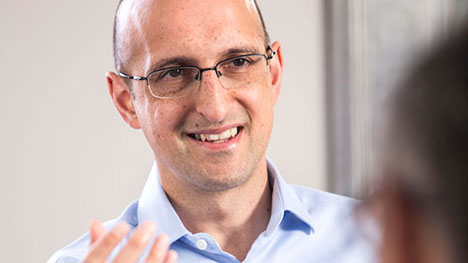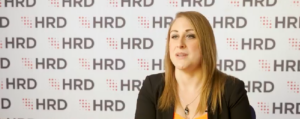What business and HR leaders can learn from Microsoft
- 5 Min Read
Matthew Syed, author of Black Box Thinking and Bounce discusses what HR leaders and businesses alike can learn from Microsoft. Syed discusses these teachings and the art of possessing a growth mindset to enable a strong learning culture. He discusses his recent encounter with the CEO of Microsft and the importance of being a cultural architect for your business.
- Author: Matthew Syed
- Date published: Jun 14, 2018
- Categories

I spent the day with Satya Nadella, the chief executive of Microsoft. He is regarded as one of the world’s top leaders, having grown market cap by $250billion since taking the helm in 2014. A big part of his explanation for this turnaround is simple: creating a “learning culture”. “I wanted our company to be a team of ‘learn it alls’ rather than ‘know it alls’” he said.

Growth mindset
This mindset can be profoundly destructive. In a complex world, progress is not about proclaiming how much you know, but finding out what you don’t know. It is about finding weaknesses quickly, so they can be turned into strengths. In short, it is about a mindset that is not defensive (“how dare you tell me that I am not super smart!”), but expansive (“none of us have all the answers, so let’s discover new ideas!”). This is sometimes called the growth mindset.
This distinction is subtler than it might at first appear. In his book, Expert Political Judgement, the great American academic Philip Tetlock found that high reputation forecasters, on average, made worse predictions than lower reputation forecasters. The reason is that the high reputation forecasters, who often made predictions on television, have oversized egos. They want to look smart, so when their predictions failed, they came up with ex post rationalisations for why they were right all along.
The irony is that because they were bright, these self-justifications were superficially plausible. They deluded both the economist and their clients, and torpedoed the adaptive process upon which science depends. This psychological process is not unrelated to a family of psychological quirks, such as confirmation bias, biased search, hindsight bias and the post hoc fallacy.
Lower reputations forecasters on the other hand, could see the data for what it was. Their egos were not bound up with their existing assumptions because they hadn’t been on television seeking to justify them. They were therefore more adaptive, their models and heuristics altering in the light of the evidence. That is why they were more successful at making sense of complexity. The dichotomy between the fixed and growth mindsets can be seen in many domains, is corroborated by field data, and by randomised control trials. This is precisely what Nadella was attempting to change at Microsoft, altering it from a defensive, ego-driven company to a dynamic one seeking to innovate, break down silos and rediscover its core purpose. “I wanted to create a growth mindset at an organisational level,” he said. “I don’t want to claim we are there; that would be premature. It is a constant journey, and one we are still travelling.”
Empathy
Another concept that was crucial to the change at Microsoft is empathy. Nadella learned the importance of this in his personal life when his first child, Zain, was born with cerebral palsy. For several years, he was angry at the world. Angry about what it meant for his life. Angry at the disruption. By observing his wife, Anupama, whose compassion was instant and powerful, he realised that he had to change. “I had to see the world through the point of view of Zain,” he said. “I needed to immerse myself in his perspective, to develop the compassion and understanding that enabled me to be a better dad and husband.”
This ability to see the world from the point of view of others is, he says, crucial for enlightened leadership. How can you provide for your customers if you don’t have a deep and radical understanding of their needs? How can you motivate your people if you don’t know their challenges and aspirations? And, more generally, how you can create a sustainable company if there isn’t a human mission – and not merely profit – at the heart of it?
What struck me most about Nadella, at a personal level, was how much he asked and listened. When we first met before taking to the stage (over the course of the day we had two Q&A sessions, one for the press and one for customers of Microsoft), he could see that I was a little nervous. He asked about my life and family, and we realised we had a common interest in cricket. After a few minutes, we were completely relaxed in each other’s company. Not surprisingly, the two events went well. I would advise everyone to read his book, Hit Refresh.
Culture, as a concept, often sounds a bit soft and ephemeral. Most of the top leaders today, however, see their jobs, in part, as cultural architects. It was crucial for Nadella to alter the culture of Microsoft, so that the internal dynamic shifted from defensive to expansive, from fear of change to embracing change, from fixed to growth. They were no longer just looking smart; they were being truly smart.
To read more about Mindset Advantage, the innovative diagnostic tool that will help you embed growth mindset across your business and transform performance, click here or contact the team – [email protected].







